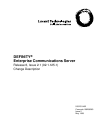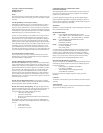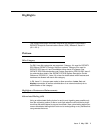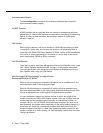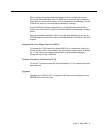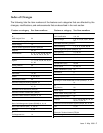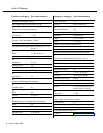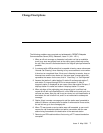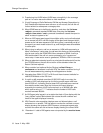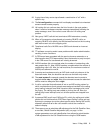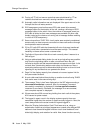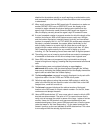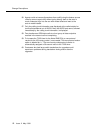
Issue 2 May 1998 11
disabled for the stations actually on a call requiring an authorization code,
and are reenabled when the dialing of the authorization code is completed
or abandoned.
47. When a call covered from an EAS agent login ID extension to a station on
another DEFINITY ECS over an ISDN DCS+ trunk, the display at the
covered-to station showed the physical station name (rather than the
agent’s login ID extension name) where the EAS agent was logged in.
Now, the display correctly shows the agent’s login ID extension name.
48. If a user forwarded a station to a remote number for which the length of the
number (including an ARS or AAR feature access code) was 16 digits,
and the number required an interdigit timeout (typically, an international
number, for example, 88+011-44-719710089), the number was accepted.
But when a call was forwarded, the system waited indefinitely for the
end-of-dialing timeout or a pound sign (#). (Note that a pound sign is
stored with the number when the number of digits is less than 16.) Now,
Call Forwarding works correctly for any number of digits up to, and
including, 16. Call Forwarding cannot store more than 16 digits at present.
49. The calling party on an incoming trunk call that was routed to coverage or
a forwarded-to destination off-net did not always hear ringback tone.
50. Some DCS calls were not transparent (they had double burst ringing
instead of single burst ringing), meaning that they were treated as external
calls.
51. VuStats displays were not updated following an agent login or
add/remove skills action until the data displayed changed (the VuStats
lamp was on indicating that VuStats was active but the display showed the
agent’s skill set rather than the VuStats display).
52. The list configuration command incorrectly displayed circuit pack suffix
higher than suffix A for the TN790 and TN798 circuit packs.
53. Calls that used adjunct routing that received AAR analysis in which the
value in the Min field did not equal the value in the Max field on the AAR
Analysis form, could fail to route out.
54. The list mmi command displayed the cabinet number of the board
location to the SAT based on its port network number. On the G3r, these
numbers are not always the same.
55. Users of BRI terminals had 127 as a cause value in cases in which a BRI
terminal was disconnected. The value of 127 is cause unknown that is
really not true because the switch is aware of the Layer 1 status of a data
module. Users of a BRI terminal could see some feedback that was
somewhat ambiguous. Now, users of BRI terminals have 18 as the cause
value that maps to “No User Responding.” On the tested terminals "No
Answer" came up as the user feedback at a BRI data terminal. This value
is more aligned with the actually physical cause.



